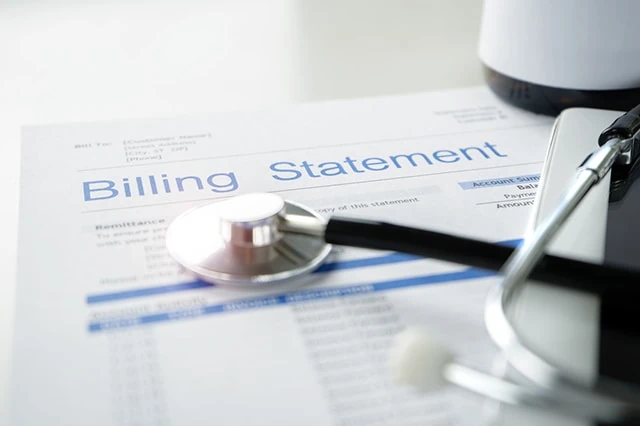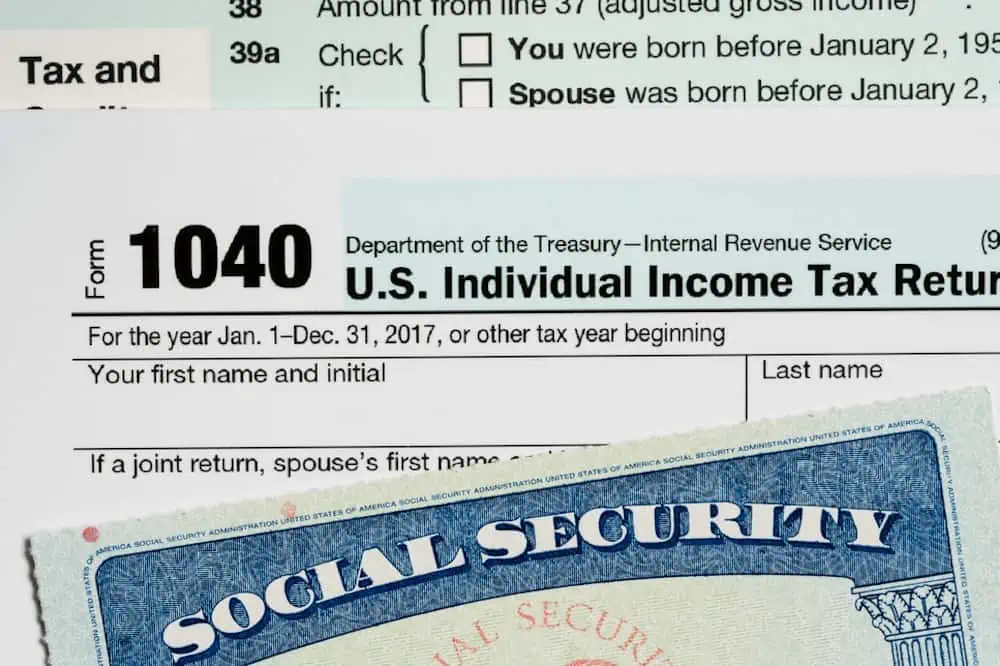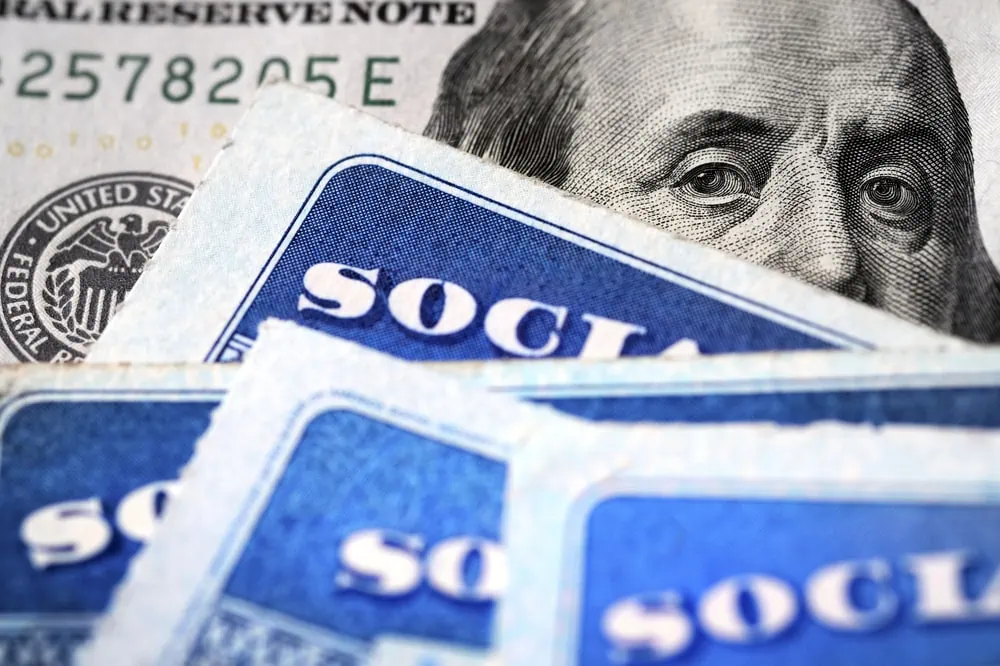Early retirement is a dream for many, but navigating health insurance before Medicare kicks in can be a daunting task. With healthcare costs soaring and people near the traditional retirement age having elevated premiums, it’s crucial to have a solid plan in place. Whether you’re trading the office for the golf course or pursuing passions full-time, ensuring proper health coverage is essential.
Good news! You still have several health insurance options available to you in the post-employment, pre-Medicare phase of your life. Today, I’ll discuss health insurance options for early retirees so you can pick the best choice for you.
Table of Contents
When Will I Be Eligible for Medicare?

Most people first qualify for Medicare at age 65. There are exceptions: You may qualify at a younger age if you have a disability, end-stage renal disease, or amyotrophic lateral sclerosis (ALS), according to the U.S. Department of Health and Human Services.
If you turn 65, and you’re already receiving Social Security or Railroad Retirement Board benefits, you will be automatically enrolled in Medicare Parts A and B. However, if you haven’t claimed Social Security, you’ll need to sign up for Medicare yourself. The seven-month initial enrollment period starts three months before you turn 65, and ends three months after the end of the month in which you turn 65.
However, simply retiring does not make you eligible for Medicare. So if you stop working before you qualify for Medicare—and as a result, lose your employer-sponsored health coverage—you’ll need to find another way to “bridge” the gap between now and age 65 with affordable health insurance.
Health Insurance for Early Retirement: Employment-Related Options

Depending on your circumstances, you might be able to qualify for one, some, or all of these early retirement health insurance options. If more than one of these are available to you, carefully compare the pros and cons of each to choose the best course of action.
I’ll start by looking at options that are still in some way tethered to an employer, and then I’ll move on to options that are not.
1. Join Your Spouse or Domestic Partner’s Health Insurance Plan

A simple way to keep health insurance coverage is to be listed on your spouse’s plan.
What if you’re unmarried, but in a domestic partnership? Well, it depends. You’ll need to ask the health insurance plan administrator if it includes coverage for domestic partners (or sometimes “qualified domestic partners”). While it’s more popular to offer this coverage than it used to be, it’s still not provided by all employers. Eligibility is determined by state, employer, and/or insurance company.
However, if your spouse (or domestic partner) is already retired or not working for another reason, this option won’t help you.
Related: 7 Best Wealth + Net Worth Tracker Apps [View All Your Assets]
2. COBRA

If you leave your job, and you had health insurance through your employer, and your workplace had 20 or more employees, chances are you’re eligible for Consolidated Omnibus Budget Reconciliation Act (COBRA) coverage.
COBRA coverage provides workers and their families who lose health insurance the right to continue group health benefits given by their group health plan for a limited period of time—typically 18 months, though in certain circumstances, eligibility extends up to 36 months. (And while it’s rare, workplaces can elect to provide even longer continuation coverage.)
While COBRA is usually thought of as a solution for people who have either been laid off or had their work hours reduced, you can also qualify for coverage if you quit.
That said, while COBRA health insurance coverage might be available to you, your former employer doesn’t have to subsidize it. Individuals may be required to pay the whole premium coverage, up to 102% of the cost of the plan.
This is an expensive route for early retirement health insurance, but given that it’s merely a temporary solution until Medicare kicks in, it still might make sense for people who were comfortable with their workplace plan and are fine with paying the high costs.
Elderly Scams: Beware These 15 Schemes Targeting Seniors
3. Employer-Sponsored Health Insurance Benefit

Some employers offer health insurance as a retirement benefit. And in a few rare cases, they actually even continue to pay a portion of the monthly premiums.
Usually, this is designed as a supplement to Medicare, rather than a replacement. Once you reach Medicare eligibility, you still might be able to keep your health plan. Check with your employer to find out if this is an option, and if so, the specifics of what’s covered.
This isn’t an option for most people, but if it’s available to you, consider yourself lucky.
Related: 5 Best Fidelity Retirement Funds [Low-Cost + Long-Term]
4. Part-Time Work

Rather than a full early retirement, you might work a reduced amount of hours with a company that offers health insurance options for part-time workers.
Working part-time can provide you with extra money, which could keep you from having to tap your nest egg before you start full retirement. And some people just really like working; a new part-time gig allows them to do so while enjoying a refreshing (and possibly less demanding) change of pace.
You might hear this method called “Barista FIRE” (financial independence retire early). It got the name because Starbucks is among the companies that provide health insurance to part-time workers, but there are plenty of others—REI and IKEA are among the best-known.
Related: 21 Best Side Hustles for Retirees [More Fun, More Funds!]
Health Insurance for Early Retirement: Other Options

Early retirees also have a few health insurance options that in no way, shape, or form involve dealing with an employer.
Like Young and the Invested’s content? Be sure to follow us.
5. Health Insurance Marketplace

Even before retirement, many people without employer-sponsored coverage get their plans through a state health insurance marketplace. And they’re certainly an appropriate option for people hanging up their stapler early.
The cost of a marketplace health insurance plan can vary dramatically from state to state and plan to plan. However, early retirees aren’t necessarily doomed to high health insurance deductibles and copayments. It’s possible you might qualify for tax credits and savings on your premiums—and thanks to the Inflation Reduction Act of 2022, tax credits and subsidies on this plan have been extended through 2025.
Also worth noting: You can’t be denied coverage for a pre-existing condition.
The enrollment period for health coverage begins Nov. 1 and ends Jan. 15 (or Jan. 16 when Jan. 15 is a federal holiday). Outside of these dates, only people who qualify for a Special Enrollment Period can enroll or switch plans. (You may qualify for a special enrollment period if you’ve recently experienced one of several specified life events, such as losing health insurance or getting married, or if your household income is below a certain threshold.)
Related: How Much Should I Contribute to My 401(k)?
6. Private Health Insurance

Rather than get coverage through the health insurance marketplace, early retirees can opt to buy private health insurance.
On the upside, you might have more options available to you than you’d have on the marketplace. On the downside, you can forget about getting subsidized care with private health insurance; it’s simply going to cost more, no matter who you are.
Also, like with marketplace plans, private health insurance options will vary by state.
Related: 15 Best Investing Research & Stock Analysis Websites
7. Medicaid

Medicare and Medicaid are frequently spoken in the same breath, and they’re commonly confused for one another. Medicaid is actually a joint federal and state program that provides health coverage to people who fall under certain income thresholds. Eligibility varies by state.
Once you begin your early retirement, your household income will likely significantly decrease. At your lower income, you might qualify for Medicaid. So you’ll need to look at your particular state’s criteria for Medicaid qualification.
Related: How to Max Out Your 401(k) + Other Retirement Accounts
8. Cash Pay

Technically speaking, health insurance is mandatory at the federal level. But the federal tax penalty for not having at least a minimum amount of coverage was struck down as part of the Tax Cuts and Jobs Act of 2017.
As a result, except in a handful of states—California, Massachusetts, New Jersey, and Rhode Island—and the District of Columbia, health insurance is effectively not mandatory anymore.
So, if you don’t live in one of those states or D.C., you can simply choose to forego health insurance and simply pay cash as you need health care.
On the one hand, many providers offer significantly discounted rates for people who pay in cash. But discounts or not, it’s a risk—a major health event could quickly and significantly drain the financial resources you’ve accumulated.
Related: 9 Monthly Dividend Stocks for Frequent, Regular Income
9. Health Share Plans

Health share plans (sometimes called health share ministries) technically aren’t health insurance, though it’s similar in that it can help save you money on medical costs.
Health share plans are effectively a group of members who pool their money to cover health care expenses for one another. They’re typically more economical than traditional insurance, but that’s a double-edged sword. Health share plans sport low prices because they allow medical underwriting … which means you could be denied entry into one of these plans depending on your medical history.
There are a few other pitfalls to be mindful of, too. New members sometimes pay for several months before enjoying benefits. “Coverage” is usually limited to medical basics and catastrophic events. Also, many (not all, but many) health share plans are centered around a religion and require you to declare your faith and/or require you to abstain from certain vices, such as alcohol, tobacco, and/or drugs.
Needless to say, you should thoroughly research any health share plan before joining.
Related: Capital Gains Tax: What Is It, Rates, Home Sales + More
Does Medicare Cover Everything?

Medicare is pretty comprehensive, but no, it doesn’t fully cover all health care costs.
There are two main ways to receive Medicare. You can get Original Medicare (Part A and Part B) or a Medicare Advantage Plan (Part C). Some individuals need more coverage, such as Medicare drug coverage (Part D) or Medicare Supplement Insurance (Medigap).
There are two main ways to receive Medicare:
1. Get Original Medicare (Part A and Part B, or just Part B). You can enroll in a separate drug plan to acquire Medicare drug coverage (Part D).
2. Get Medicare Advantage (Part C). Part C plans are Medicare-approved plans from private providers that offer Part A and Part B coverage, and often Part D, too.
Most people don’t have to pay a premium for Part A coverage, but you will have to pay a premium for Parts B, C, and D.
While Medicare handles a lot, it doesn’t cover certain services, which include (but aren’t limited to):
— Routine physical exams
— Most dental care or dentures
— Hearing aids (or exams for fitting them)
— Massage therapy
— Long-term care aka custodial care
— Cosmetic surgery
— Concierge care
— Anything from an opt-out doctor or provider, except for emergencies
How Much Will Healthcare Cost During Retirement?

According to Fidelity Investments’ annual Retiree Health Care Cost Estimate, a 65-year-old currently retiring would spend an average of $157,500 in health and medical costs throughout retirement. This estimate assumes people are enrolled in traditional Medicare. Early retirees have more years to cover and would therefore likely spend more.
Your costs may be over or under the average, depending on your health. Keep in mind that while you might currently be in good health, that can quickly change. Fidelity research has shown that Americans tend to underestimate how much money they will spend on health care during retirement.
Related: Best Fidelity Retirement Funds for an IRA
What Does Health Insurance Cost for Near-Retirees?

As we grow older, health insurance costs go higher. This isn’t because we tend to have more money as we age and thus are more able to afford to pay more. Instead, this consistent uptick is because, generally, as people age, they need more medical care, which costs more. To compensate, insurers charge higher premiums to offset these costs.
However, insurance providers are bound by certain rules initially put in place by the Affordable Care Act and subsequently extended with regulations that came about because of it. They can only hike premiums so much due to your age. Specifically, the Market Rules and Rate Review Final Rule (45 CFR Part 147) provides that each state will use age rating ratios of 3:1 using a federally established age curve, which means small-group health coverage must be capped at no more than three times the premiums that apply to a 21-year-old. The rates paid by this young age group are generally called “the base rate.”
According to the Kaiser Family Foundation in 2022, the national average “base rate” for 21-year-olds was $457 per month. And while these rates can vary by company, state, type of employer, and other factors, under the assumption that 64-year-olds top out at a 3:1 ratio, that means the national average monthly premium for health insurance at the year before turning 65 is $1,371 per month. A full list of age rating ratios can be found at the Centers for Medicare & Medicaid Services website.
How Else Can I Pay for Healthcare During Retirement?

Even those who secure excellent early retirees’ health insurance will likely have out-of-pocket costs to cover. In preparation for retirement, one of the best actions you can take is to put money into a health savings account (HSA).
Money added to an HSA can be withdrawn for qualifying healthcare expenses tax free. You also don’t have to pay federal income taxes on the money you put in the account or the interest earned. Your contributions don’t expire like with a flexible spending account (FSA), meaning they roll over each year. Plus, once you reach age 65, you can withdraw money for non-medical costs without any penalty, though you would pay federal taxes on that amount.
Note that not everyone is eligible for an HSA. You must currently be enrolled in a qualifying high-deductible health insurance plan to make contributions. For those who are eligible, there are annual HSA contribution limits. The 2024 limits are $4,150 for self-only coverage and $8,300 for family coverage. Individuals aged 55+ can also make an additional $1,000 for self-only coverage as a “catch-up” contribution.
Like Young and the Invested’s content? Be sure to follow us.
Related: 11 Ways To Avoid Paying Taxes on Your Social Security

If you’re looking to minimize the tax bite taken out of your Social Security benefits in retirement, you’ve got several available actions to reduce how much you pay each year. We outline several ways to avoid paying taxes on your Social Security benefits.
Related: How Are Social Security Benefits Taxed?

In many cases, Social Security benefits are subject to federal taxation. To learn how your Social Security benefits are taxed, we’ve got an entire guide to walk you through the calculation.
Related: 10 States That Tax Social Security Benefits

While most states don’t subject Social Security benefits to taxation, at least 10 states do tax Social Security. To see if you live in one of them, or you’re considering a relocation for retirement and taxation of your Social Security is a sticking point, we’ve got you covered with all of the details.
Related: 9 Best Monthly Dividend Stocks for Frequent, Regular Income

The vast majority of American dividend stocks pay regular, reliable payouts—and they do so at a more frequent clip (quarterly) than dividend stocks in most other countries (typically every six months or year).
Still, if you’ve ever thought to yourself, “it’d sure be nice to collect these dividends more often,” you don’t have to look far. While they’re not terribly common, American exchanges boast dozens of monthly dividend stocks.
Please Don’t Forget to Like, Follow and Comment

Did you find this article helpful? We’d love to hear your thoughts! Leave a comment with the box on the left-hand side of the screen and share your thoughts.
Also, do you want to stay up-to-date on our latest content?
1. Follow us by clicking the [+ Follow] button above,
2. Subscribe to The Weekend Tea, our weekly newsletter to read more about investing, spending, taxes, and more, and
3. Give the article a Thumbs Up on the top-left side of the screen.
4. And lastly, if you think this information would benefit your friends and family, don’t hesitate to share it with them!





